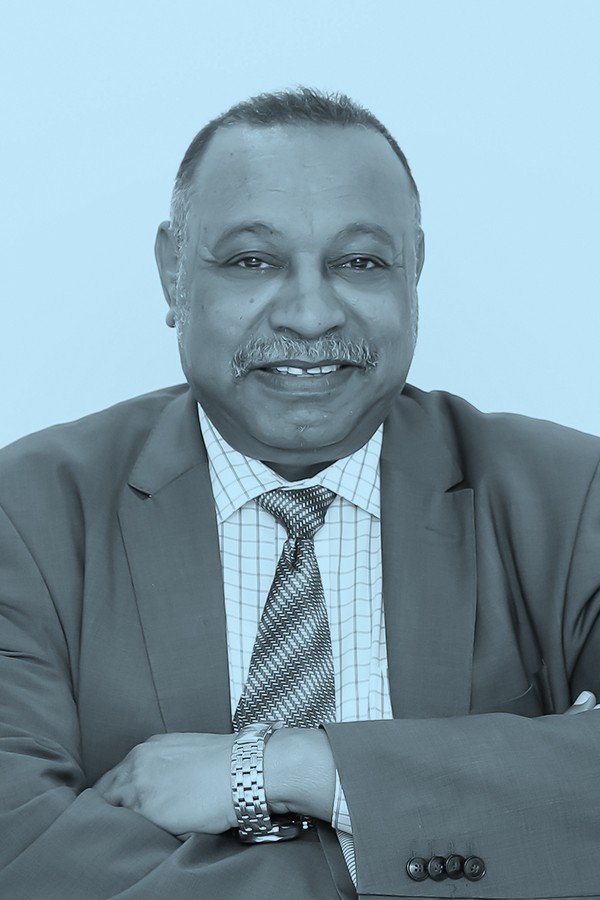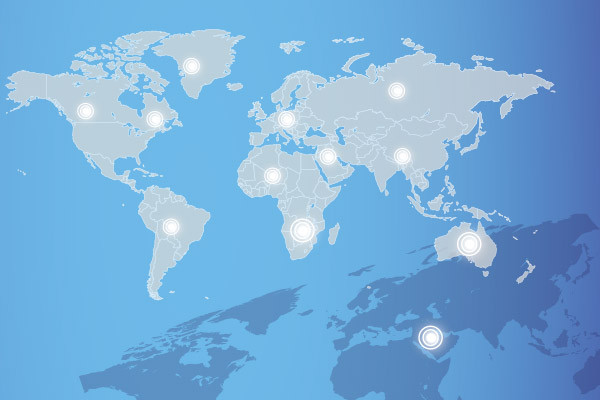BRICS+ Countries and the challenges of developing global institutions
The BRICS+ bloc (Brazil, Russia, India, China, South Africa, and allies) aspires to create global institutions that challenge Western-dominated organizations like the IMF and World Bank and promote a multipolar world. However, this ambition faces obstacles due to differing political and economic agendas, governance and coordination issues, fiscal constraints for new financial institutions, challenges in developing a dollar alternative, geopolitical pressures, and the need for institutional legitimacy. While progress has been made, notably with the New Development Bank, the bloc must navigate these complexities to reshape global governance effectively.

- by Dr.Ibrahim Karsany ,
- Tuesday, 5th November, 2024
The BRICS+ (Brazil, Russia, India, China, South Africa, and their prospective allies) faces significant challenges in developing global institutions that align with its goals for a multipolar world. This group seeks to provide alternatives to Western-dominated financial institutions like the International Monetary Fund (IMF) and the World Bank, aiming to reshape global governance and reduce reliance on the U.S. dollar. However, several key challenges complicate this ambition, notably among them are:
1. Diverse Economic and Political Agendas
The BRICS nations encompass widely different political systems and economic structures, ranging from Brazil's democratic setup to China’s single-party state, resulting in differing priorities. For example, China's Belt and Road Initiative emphasizes on infrastructure financing, while Brazil’s focus more on resources and agriculture trade. This diversity makes it difficult to form a cohesive vision and agenda for new global institutions.
2. Coordination and Governance Issues
Effective multilateral institutions require a shared governance framework which can be difficult to achieve without a singular vision. While countries in the BRICS+ have a shared interest in balancing Western influence, they lack the integration and coordination found in Western alliances such as NATO or the European Union. Developing cohesive governance structures would require substantial compromise and coordination, as each country seeks to protect its own strategic interests.
3. Establishing Financial Credibility
Creating financial institutions to compete with the IMF and World Bank requires substantial funding and risk management. The BRICS countries face fiscal constraints that limit their ability to provide the capital required to lend at a large scale to developing nations. Though China has substantial resources, its loans are frequently linked with strategic interests that don’t always align with other BRICS countries, thereby complicating equitable contributions.
4. Alternative Currency Challenges
BRICS+ countries have floated the idea of developing an alternative reserve currency to challenge the U.S. dollar’s dominance. However, creating and adopting a viable alternative currency would require the creation of robust financial markets, international trust, and mechanisms for currency stabilization—tasks that require extensive multilateral coordination and economic cohesion. Such an undertaking would likely take decades and require enormous political will and economic sacrifices.
5. Geopolitical Pressures and Rivalries
BRICS+ nations face geopolitical pressures from Western countries, especially considering Russia’s and China’s tense relations with the U.S. The sanctions imposed on Russia following its actions in Ukraine demonstrate the Western bloc’s ability to isolate countries financially. BRICS countries may also be hesitant to align too closely with one another to avoid escalating tensions with Western trading partners, further limiting their collaboration on global institutions.
6. Institutional Legitimacy and Transparency
To attract support from developing countries, BRICS+ institutions must prioritize transparency, inclusivity, and accountability—principles that the IMF and World Bank are often criticized for lacking. Overcoming internal governance challenges and building trust externally would be necessary to establish BRICS+ institutions as legitimate and effective alternatives.
Current Initiatives and the Path Forward
Despite these challenges, BRICS+ countries have made some progress. The New Development Bank (NDB), established by BRICS in 2014, represents a step toward financial independence. However, the NDB’s scale and influence remain modest compared to established Western-led institutions. To build on these steps, BRICS+ may need to focus on incrementally expanding its institutions, possibly by incorporating regional alliances and creating specialized mechanisms for trade and currency exchanges within the group.
The BRICS+ nations' push to reshape global institutions represents a profound shift in global economic governance, but their success depends on the ability to overcome the complexities of coordination, establish credibility, and maintain unity amid diverse political and economic interests.
Dr. Ibrahim Karsany
Economic Consultant

Dr.Ibrahim Karsany
Economic consultant
Read More
Areas of Expertise
- Public Policy
- Development issues
- Economic Planning
- Competitiveness
Education
Ph.D. in Economics.
bio
Dr. Ibrahim Karsany graduated from Khartoum University with a Bs.C. (Hon) in economics, followed by a Ph.D. in development economics from Leeds University, England. He has accumulated a rich research experience in different fields of study ranging from development studies, economic planning, and problems of under-development to total quality management and competitiveness of nations.
Dr. Karsany’s work experience extends over four decades and ranges from university teaching, at both undergraduate and graduate levels, to working in international organizations such as the United Nations Development Programme (UNDP) and in Governments, e.g, as Advisor to the Ministry of Economy, Oman, Muscat and as Economic Development Advisor, Department of Economic Development, Dubai, as well as in the Private Sector (DPPRC, Bhuth).
He has been a Visiting Professor and Scholar at reputable academic institutions; notable amongst them are Bergen University, Norway, The Scandinavian Institute for African Studies, Uppsala, Sweden, and The Hungarian Academy of Science, Budapest. He also published a number of studies in learned specialized international journals and served on the Editorial Boards of Academic Journals in Sudan and abroad; e.g, The Review of African Political Economy (ROAPE), published in England. He has also presented papers as well as participated in a considerable number of international conferences, seminars and workshops and has published more than sixty pieces in daily printed as well as electronic papers covering a wide range of socio-economic as well as political topics and issues.

